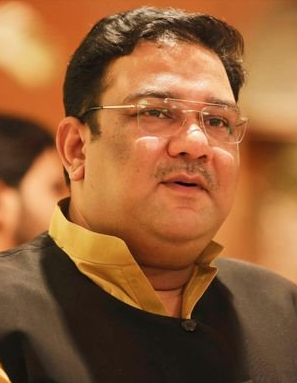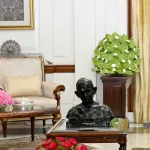President Droupadi Murmu has given her approval to the Waqf (Amendment) Bill, 2025, just a few days after the Parliament passed it following long and serious debates in both the Lok Sabha and Rajya Sabha. This important step by the President now makes the bill a law. The new law has brought attention to a long-ignored issue related to Waqf properties in India. It aims to improve the way these properties are managed and to make sure they are used properly for the welfare of the poor and needy. The law also hopes to bring fairness, transparency, and accountability in the use of Waqf lands, which are meant to help the community, especially the weaker and poorer sections of society.
The passage of the Waqf (Amendment) Bill and the Mussalman Wakf (Repeal) Bill marks a historic and much-needed reform to India’s governance system. The laws focus attention on a matter that had for long lurked in the shadows—Waqf properties and their management. For decades, the Waqf system suffered from mismanagement, lack of transparency, and absence of public accountability. With these reforms, India has taken a courageous step toward rectifying historical injustices and ensuring that charitable assets meant for the welfare of the underprivileged are put to rightful use.
Waqf properties were originally donated with a noble intention of serving the community. Lands and wealth were gifted for the purpose of religion, society, and education. These properties were supposed to mentor the poor, build schools, hospitals, orphanages, and support religious institutions. But sadly, over a time, many such properties were misused, illegally occupied, or managed without records or supervision.
One of the biggest maladies of the previous system has been secrecy shrouding and confusion surrounding the ownership and usage of Waqf lands. Poor people, especially Muslims and weaker sections, were the real beneficiaries, but these went unhelped mainly because of public ignorance; nobody knew who controlled them, and little information was provided to the general public.
The purpose of the Parliament’s reforms is to make amends for such a systemic failure. They seek an establishment of rules providing for a higher level of information on what Waqf boards do, and a greater degree of accountability for their actions. The new law ensures that every Waqf property shall be properly recorded, audited, and monitored. Now the public shall see how these lands are utilized and whether they actually serve society.
One of the most significant features of these reforms is the empowerment of the community, especially those neglected for decades. Poor Muslims, especially Pasmanda Muslims and Muslim women, were among the ones hardest hit by the earlier system of the Waqf. They were unheard and their needs neglected. With these new laws, the doors now open for them to receive benefits from Waqf resources.
This development is specifically transformative for Muslim women. They have had no say over the use of Waqf lands in the past. Many have been deprived of education, health care, and jobs because funds and lands meant for their benefit have been diverted. These reforms raise hope for their equal access and rightful share.
The essence of any good governance system is transparency. With the new laws in place, digitized records of Waqf properties will be kept. This will give the public accurate information about which lands are Waqf lands, how they are being used, and by whom. This will lessen the chance of illegal encroachments and stop the misuse of public funds.
Another of the strong arms of these reforms is the community feedback part. Their voices were heard by the government and the Parliament. Common citizens, experts, and local leaders voiced their suggestions; these were all studied and made part of the final laws. This shows that it is a democracy where life exists and the voice of the people matters.
The repeal of the Mussalman Wakf Act from 1923 is a very significant issue in this context. The Act was antiquated and no longer met the demand of the time. Its repeal sets the stage for the emergence of a sounder, more socially just, and efficient system of law. It sends the message that India is now ready to get rid of laws unconcerned with the realities of present times and the needs of people.
In the larger context of inclusive development, too, these reforms bear significance. They represent the government’s seriousness regarding ensuring that all citizens are given justice and with equal opportunities to prosper and grow. No one should be left behind, truly, by virtue of his caste, creed, or economically backward status.
Such bold reforms need strong leadership, vision, and courage. It is not easy to touch such sensitive broad areas dealing with religion, communal interests, and past systems. But if the intention is justified, and with the prime objective of public welfare, an entire spin of systems could be turned for public good.
Not just a legal change but a social transformation: restoring to those denied a right their rightful dues. The cleansing of a system made sacred and holy into a source of pain and injustice for many. Such reforms will also increase trust between the government and the Muslim community. When one listens and addresses people’s concerns, such a system commands faith in the institution. And that everyone matters, and no one will be ignored.
In the long term, this modern and transparent Waqf system will benefit the economy. Waqf lands and buildings are extensive amounts of property. Disposed of well, these can generate employment, education, housing, and health care. This is a win-win for both the community and the country.
The time has come when young Muslims will be organized for better utilization of Waqf funds into skill training, scholarships, or start-up programs. It is the window opening to a better future for many.
Religious institutions and clerics will also benefit from these reforms as they will have clearly spelt out guidelines, better support and more accountability. It will bring respect to religious activities and save improper actions in the name of religion.
This reform is further expected to inspire other communities to seek the same transparency in their religion and charity institutions. Once any section of society takes the first step towards fairness, many others tend to follow the same path.
The path will still demand careful implementation. Mere laws are not enough-they ought to be followed, monitored, and improved as needed. For these reforms to succeed on the ground, there has to be synergy among the people, the Waqf Boards, and government authorities.
This is undoubtedly a brave and progressive stride toward a better, more inclusive India. Here is a government that listens, acts, and believes in justice for all. The reforms in Waqf would bring hope, dignity, and opportunity to those who were away for far too long. This is indeed a proud moment in our country’s long journey toward equality and empowerment.
(The Author is Professor and Donor of Aligarh Muslim University, Aligarh. Email: [email protected]








